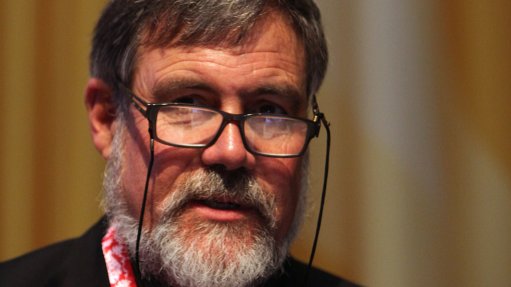
Council for Industrial and Scientific Research (CSIR) system ecologist Dr Bob Scholes has been elected as a foreign associate to the US National Academy of Sciences (NAS), an honour bestowed upon the world’s best scientists as chosen by their peers.
The NAS, an independent, nonprofit society, established by an Act of the US Congress in 1863, was regarded as one of the top academies in the world and was tasked with providing independent, objective advice to the US government on matters related to science, engineering and medicine.
Nearly 500 of its 2 214 members and 444 foreign associates – who were nonvoting members of the academy – had won Nobel Prizes.
Only 21 foreign associates were elected yearly and there was no membership application process, as only academy members were allowed to submit formal nominations of their peers.
This was then followed by an extensive vetting process that resulted in a final ballot at the academy’s yearly meeting in April.
With this achievement, Scholes, who was well known for his contributions in the fields of global change, ecology and earth observation, joined the ranks of a small number of elite South African scientists, among them the late Professor Phillip Tobias, a paleoanthropologist from the University of the Witwatersrand (Wits).
According to Thompson ISI, which maintained databases on scientific publications worldwide, Scholes was among the top 1% of environmental scientists worldwide based on citation frequency, publishing widely in his chosen fields.
Scholes had a particular interest in the savannahs of Africa and boasted over 30 years of field experience in many parts of Africa and the world.
According to the NAS, members were elected in recognition of their distinguished and continuing achievements in original research. Election to the NAS was regarded as one of the highest honours a scientist could receive.
“I am blown away and I am humbled. It puts me in the company of internationally respected colleagues. It is a huge honour, both for myself and for South Africa,” Scholes said of his achievement.
“I hope to spread the benefits by helping the South African Academy of Science, of which I am also a member, to reach its full potential.”
Scholes had been a leader in several high-profile studies, including the Assessment of Elephant Management and the Commission on Sustainable Agriculture and Climate Change.
He had also served as a coordinating or lead author for the Intergovernmental Panel on Climate Change during the third, fourth and fifth assessments and was co-chair of the Conditions Working Group of the Millennium Ecosystem Assessment.
Scholes had been a member of the steering committees of several global earth observation bodies and was on the boards of the International Centre for Research in Agroforestry, the South African National Parks and the South African National Space Agency.
He is a fellow of the CSIR, a fellow of the Royal Society of South Africa, a member of the South African Academy, an honourary Professor at Wits and a National Research Foundation A-rated scientist.